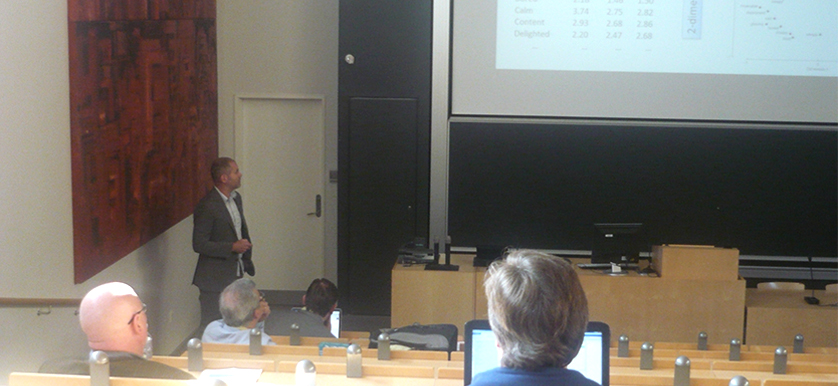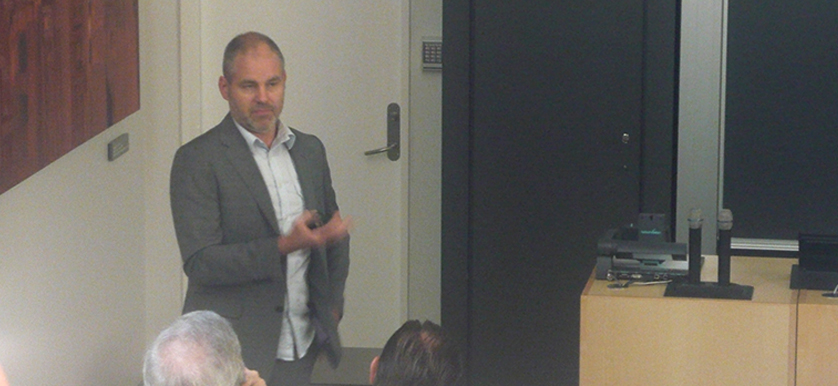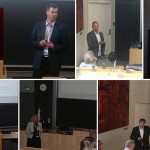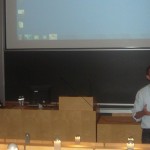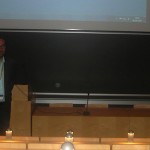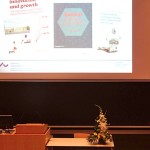About the Circumplex Model of Affect with Dan Mønster, Jacob Eskildsen, Dorthe Døjbak Håkonsson, Børge Obel, Richard M. Burton and Linda Argote at the PMA 2014 Conference
The series of parallel sessions from the third day of the PMA 2014 Conference was titled “Variations in the Circumplex Model of Affect Across Contexts” and was delivered by Professors Dan Mønster, Dorthe Døjbak Håkonsson, Jacob Eskildsen and Børge Obel, from the Aarhus University, along with Richard M. Burton, from Duke University, and Linda Argote, from the Carnegie Mellon University.
The researchers presented the results of an experiment that consisted of manipulating employee emotions and analyzing the effects of this manipulation over time. Their research study started from the observation that there is a relatively low level of attention paid to measuring employees’ emotions, despite the high influence they have on decision making and actions.
For this purpose, they compared the development of emotions across different conditions at three time periods and measured them using Russell Lewicka’s 1980 questionnaire. It was applied on 153 students from Aarhus University, who responded to an electronic recruitment flyer posted on the university’s intranet. In teams of 3 persons, they were asked to fulfill different tasks, and their emotions were compared as the experiment evolved over the experimental context.
The conclusions that were emphasized during the presentation are:
- The most productive teams were also the happiest (the strong effect), but the happy participants were also the most productive (the weak effect)
- Psychological reactions are contagious among team members.

Tags: PMA 2014 Conference
